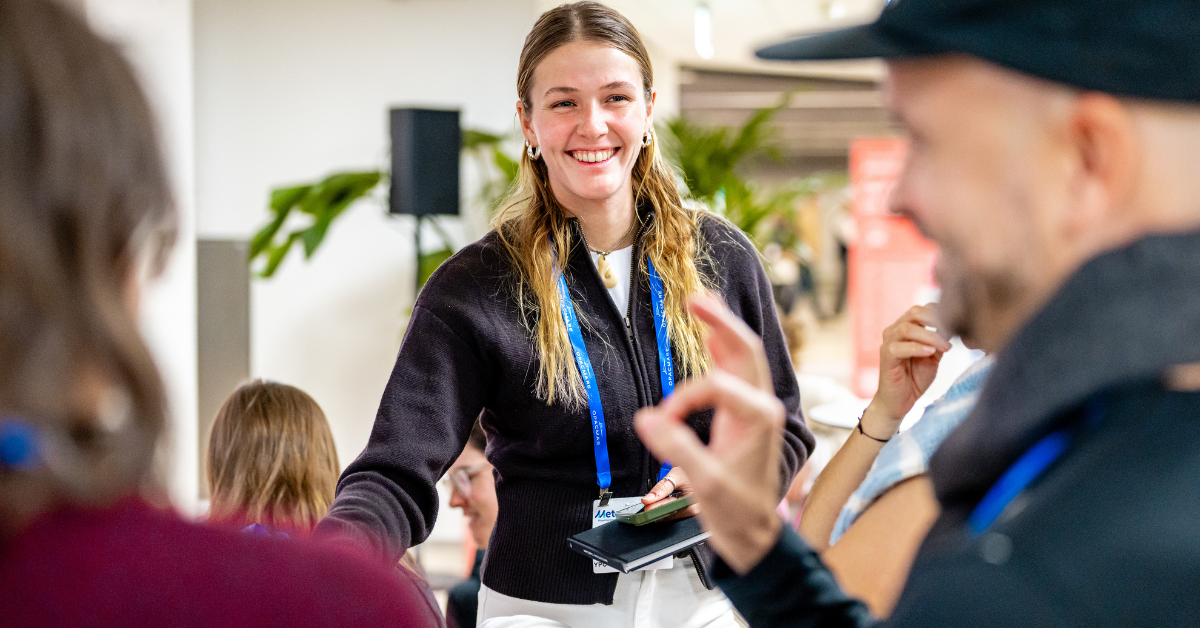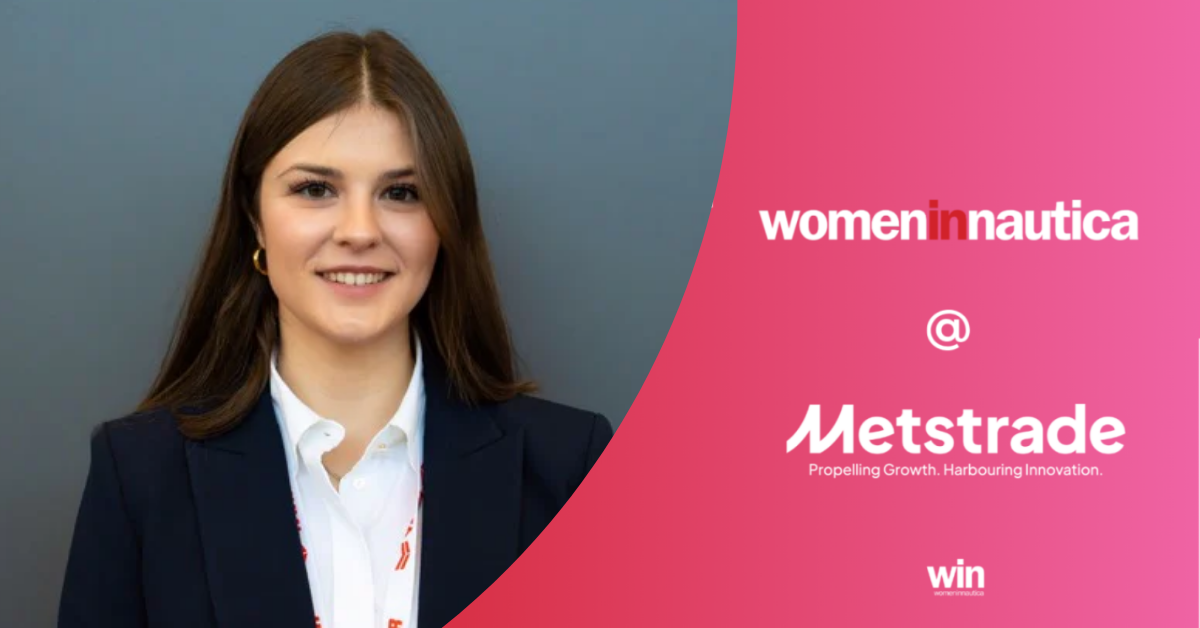Delivering the promise of tomorrow today
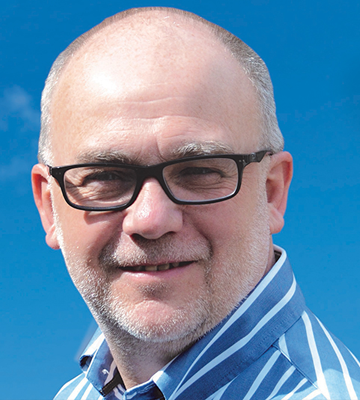 Kim Hollamby
Kim Hollamby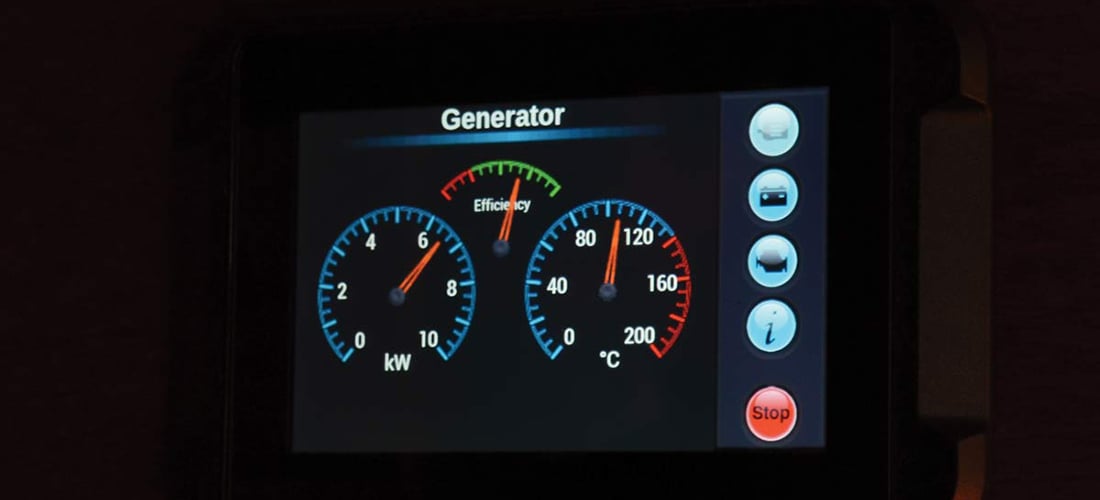
There’s a very real risk with emerging technologies if they promise much but fail to deliver. The reasons can be many, from under-funding or performance failure, to the concept being simply ahead of its time and too expensive for market conditions.
This year’s DAME Award winner shows that there is much to be gained though from looking at the bleeding edge limits of what is possible, then taking a step back to create something that uses the same research but in a more practical way for the day and age of its birth.
To understand the origins of Triskel Marine’s Integrel generator replacement technology, you need to look at company founder Ken Wittamore’s work with ICOMIA and other partners on the EU funded High Efficiency Hybrid Drive Trains for Small and Medium sized Marine Craft project (HYMAR) and then with Innovate UK and Pendennis on the High Efficiency Marine Energy (HEME) project.
“We learned a massive amount with HYMAR and the data sets it generated remain absolutely precious, 10 years on,” Ken says. “We found that serial hybrids (where the electric motor is permanently engaged on the same drive train as the internal combustion (IC) engine) were inefficient for boats travelling significant distances. Parallel hybrids (where electric motor or IC engine can be separately engaged) were more efficient but expensive and on our test boat we found the mechanical components to be unreliable. Noted technical journalist, Nigel Calder, and I enjoyed working on what was a brilliant project. However, we realised from the tests and results that there was much more to do to examine improvements in energy efficiency on leisure craft.”
The HEME project flagged the need for intelligent sensing of power demand, coupled to a fully integrated energy management system. It also threw into stark relief the known challenges of running generating sets capable of servicing full house load but often at a fraction of their capacity for much of the time, plus the decades old issues of inefficiency in vessel drivetrains and need to intelligently monitor batteries which, in Ken’s language, are “dumb, fat and happy.”
Enter Integrel, which itself has been three years in the making. At a glance, one might be tempted to see this simply as a large second alternator bolted to the side of a yacht’s main propulsion engine, but that would miss the point entirely. It exploits the large gap between the propeller curve and the optimum power output of an engine and draws that spare power intelligently for domestic use, without effecting propulsion performance.
Triskel’s assertion that the amount of fuel used for propulsion actually goes down when Integrel is drawing power has apparently been accused of being a snake oil sales pitch. But that misses the point completely. Overall fuel consumption rises, because of the domestic generation, but efficiency is massively improved.
The system can cope with going ‘open circuit’ so that Integrel can instantly stop drawing power from the alternator. This allows maximum propulsion power when manoeuvring at idle speed or towards maximum rpm.
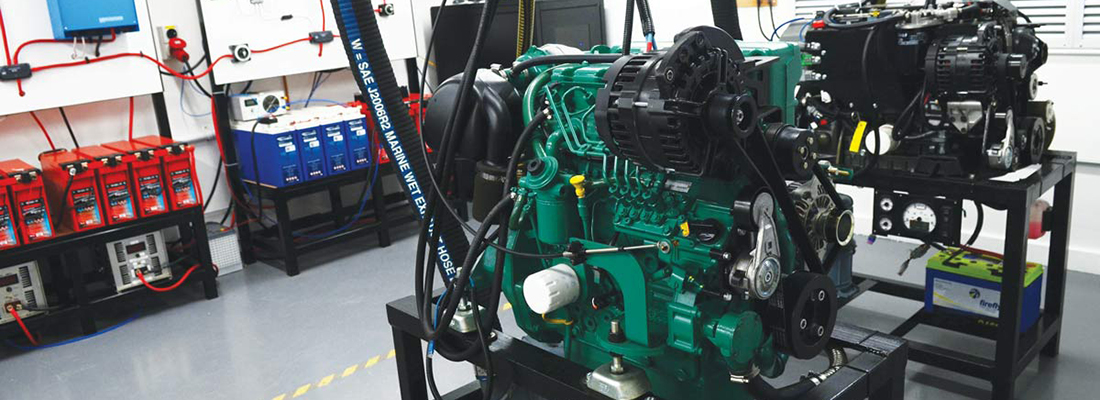
The company’s test installation aboard a Hallberg Rassy 42, present here in Amsterdam for METSTRADE, can generate 3.5kW of additional power at idle out of gear and 8kW or more when underway at normal cruising speed. That energy is directed to 48V banks of high capacity sealed lead acid batteries which then supply onboard demand via inverters and converters.
All the key components of the Integrel system have been developed by Triskel Marine, in co-operation with technical partners, for the purpose. These include the high-power alternator, its engine adaption, battery and system sensors, the controller, its software and multi-language interface. It drives a 5in display providing control and precise information about energy generation and consumption. Operation is completely automatic and requires no attention from the owner.
An early success has been the installation of an Integrel system on a new Discovery Yachts Southerly 480, launched this year and owned by Distant Shores TV adventurers, Paul and Sheryl Shard. Distant Shores III will spend much of her time in remote locations globally with paying guests aboard. Despite needing to service high domestic power demands, the Southerly has no generator, a testament to the Shard’s confidence in the new system. The anticipated fuel savings and ability to draw AC power for extended times silently will no doubt be an added benefit in some of the enviable locations they visit.
The key test of course will be whether the market understands the concept. If you add up installation and lifetime costs, the Triskel team expects its system to favourably compare against an equivalent generator installation. The benefit of potential propulsion engine longevity through its more efficient utilisation have yet to be proven but should follow. The convenience of automatically available, silent, AC power is easily understood. The main thing though is Triskel Marine’s development of a pragmatic solution today that has much wider immediate potential for immediate use than the concepts that were originally researched.
It remains the case that for longer-range passage-making in particular we are going to be burning fossil fuel for a while to come. If we cannot eliminate that altogether, then the next best idea is to make that fuel work much harder.
Share your stories on leisure marine industry with us
Do you have an innovation, research results or an other interesting topic you would like to share with the leisure marine equipment industry? The METSTRADE website and social media channels are a great platform to showcase your stories! Let us know via metstrade@rai.nl
Are you a METSTRADE exhibitor?
Make sure you add your latest press releases to your Company Profile in the Exhibitor Portal for free exposure.
